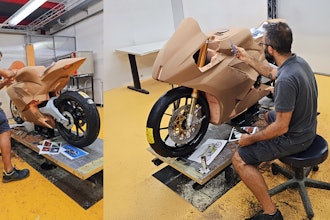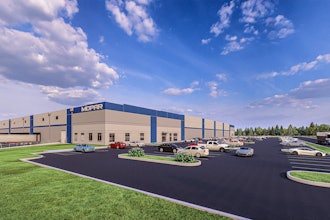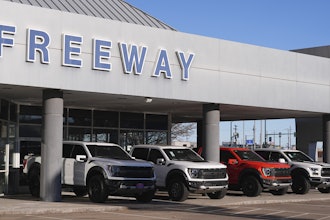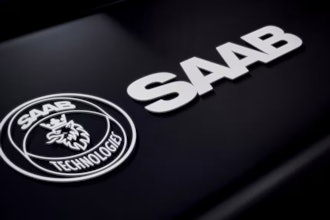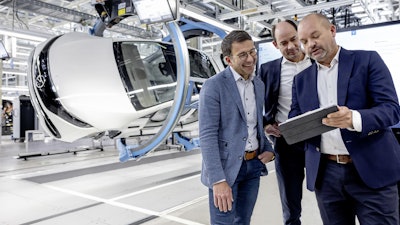
Mercedes-Benz and Microsoft will collaborate to make vehicle production more efficient, resilient and sustainable.
With the new MO360 Data Platform, Mercedes-Benz is connecting its around 30 passenger car plants worldwide to the Microsoft Cloud, enhancing transparency and predictability across its digital production and supply chain. The MO360 Data Platform is the evolution of Mercedes-Benz' digital production ecosystem MO360 and allows teams to identify potential supply chain bottlenecks faster and enable a prioritization of production resources toward electric and Top-End vehicles.
This unified data platform is standardized on Microsoft Azure, providing Mercedes-Benz with flexibility and cloud computing power to run artificial intelligence (AI) and analytics at global scale while addressing cybersecurity and compliance standards across regions. The platform is already available to teams in EMEA and will be deployed in the United States and China.
With the MO360 Data Platform, the Stuttgart-based carmaker can create a virtual replica of its vehicle manufacturing process, combining insights from assembly, production planning, shop floor logistics, supply chain and quality management. The virtual simulation and optimization of processes before running them on the shop floor helps accelerate operational efficiency and unlock energy savings. For example, managers can optimize operational patterns to reduce CO2 emissions in production.
Mercedes-Benz is also exploring the integration of the MO360 Data Platform with data sources from other departments to enable a digital feedback loop that will spur continuous learning and innovation across the Group.
The recently opened Mercedes-Benz Digital Factory Campus Berlin is the home base for the MO360 Data Platform engineering teams and will become the MO360 training and qualification center for implementing digital approaches globally.
To tackle shortages in components and prevent delivery delays, the MO360 Data Platform will enable teams to explore a variety of production scenarios depending on the availability of components like semiconductors, based on real-time data about the quality of parts and equipment. This is expected to result in productivity gains of 20% in passenger car production by 2025 and help avoid unplanned downtimes and schedule maintenance work in a timely and CO2-friendly fashion.
As part of the MO360 Data Platform, Mercedes-Benz has implemented an analytics tool to monitor and reduce its ecological footprint during vehicle production, a crucial milestone toward the company's Ambition 2039 initiative to become carbon neutral by 2039. With the data analytics tool, teams can track and forecast carbon emissions, energy and water usage as well as waste management and roll out best practices across the production network. Mercedes-Benz plans to cover more than 70% of its energy needs through renewable sources by 2030 by expanding solar and wind power at its own sites and through Power Purchase Agreements and plans to cut its use of water by 35% through the reuse of water in production.
Mercedes-Benz production staff gets access to the MO360 Data Platform via a self-service portal available on any company device including tablets, smartphones and laptops. Its visualization with Microsoft Power BI provides a what-you-see-is-what-you-get experience, allowing employees to become data workers with the ability to model and correlate data. The Teams Walkie Talkie app provides workers with an instant push-to-talk (PTT) communication on their business phones — no extra device needed.
With the MO360 Data Platform, teams at Factory 56 have shortened their daily shop floor meeting by 30%. In addition, they identify priority tasks to optimize production workflows within two minutes, which took up to four hours prior to the introduction of the platform. From team leads and process engineers to shop and plant managers, employees are encouraged to contribute new use cases to drive process innovation with Microsoft Power Platform.
Working with a global community of internal and external developers, Mercedes-Benz' process software engineers are committed to open collaboration. They use Free and Open Source Software (FOSS) including GitHub to improve the quality of the software and the speed of delivery. They benefit from Azure Data Lake, Azure Databricks and Azure Purview to process and govern huge amounts of data and run AI and analytics using their preferred development frameworks. For software deployment and operations, they work with Azure DevOps.












